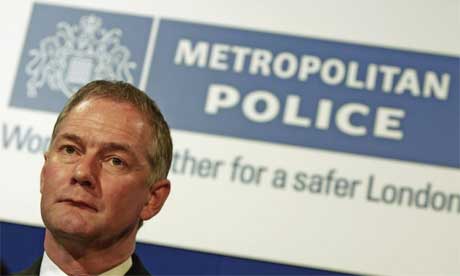Ever since 9/11, the west has been haunted by the spectre of a repeat. On Christmas Day, the date surely not chosen at random, that second attack very nearly succeeded. Only the combination of Umar Farouk Abdulmutallab's fumbling and the bravery of the passengers and crew of Northwest 253 foiled the attempt to bring down the Airbus A330 and its 278 passengers on the descent into Detroit. If the bomber had succeeded, he would have achieved the sum of all post-9/11 fears. The consequences would have been prodigious. Those on board NW253 are not the only ones who have had a very narrow escape indeed.
Nevertheless, the most striking difference between 9/11 and the Christmas plot is that the former was carried out inside US borders while the latter – like a succession of other operations since 9/11 – was not. The inference is that the terrorists, whether "al-Qaida" or not, are currently unable to mount operations within the US and are restricted to attacks on the US launched from abroad. The terrorists' chosen mode of operation thus diminishes their ability to portray themselves as purely anti-American. Increasingly they make clear that they are indiscriminately at war with the world.
As it is, the world now faces the still immense question: how did Abdulmutallab get so close? The principal answer is that the physical security measures of the airline industry were not up to it. Abdulmutallab was able to carry sufficient quantities of PETN, a well-known military explosive, on to the plane without security checks revealing what he was up to. Airport security at Lagos and Amsterdam each failed. New restrictions on passengers have already been introduced – baggage restrictions, more intimate searches, controls over in-flight passenger movement among them. Others are now certain to follow. The December predicament of the struggling airlines and their long-suffering passengers, which was already bad enough due to recession, strikes and bad weather, suddenly got a whole lot worse. Who would fly to America now, if they do not have to?
But Abdulmutallab slipped the net of the professional terrorist watchers too. This latest rich-boy terrorist – echoes of Bin Laden – had been known to the authorities for two years. He is said to have been on a list of more than half a million people with links to radical Islamist terror groups. Yet none of these authorities had much clue how close Abdulmutallab's links now were, let alone what he could come within seconds of accomplishing. With hindsight, the watchers were not sharp enough. Their databases were not good enough. This surveillance regime must be improved, where practicable and proportionate. But this is not the first time that a bomber has emerged out of left-field. The same thing happened in the 7/7 attacks in London, in the botched car bombings of 2007, and on 9/11 itself. The latest plot confirms there are more people out there trying to terrorise westerners than the strongest state in a free society can ever entirely predict or control.
When he was overpowered, Abdulmutallab was said by witnesses to be "screaming about Afghanistan". Yet it would be a too convenient simplification to see this attack as some sort of act of revenge for that war. Abdulmutallab's life history, as it is now emerging, seems to be much more driven by exposure to manichean radical Islamism in Nigeria, Britain and, in particular, Yemen. The explosive chemicals and the syringe which he used on NW253 were sewn into his underclothing in Yemen. The methods used in Friday's attempted attack have echoes of a failed Yemeni-based suicide attack on Prince Muhammad, the head of Saudi counterterrorism operations, in August. The Christmas airliner bomb plot did not take place because of western policy in Afghanistan. The west could withdraw tomorrow from Afghanistan and the continuing danger from jihadist terrorists would still be as great as it is today.






